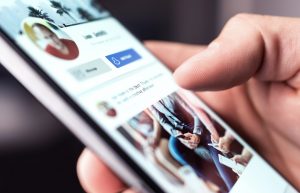
But things change. These days, Facebook seems less about positive connections and more about churning out anxiety.
A 2015 study showed a clear association between social anxiety and high levels of Facebook usage. Part of that may be that Facebook does two things: makes people feel inadequate and perpetuates FOMO – the fear of missing out.
How could it make a person feel inadequate? Let’s just say the images on social media platforms aren’t necessarily real. They are curated images selected to convey a particular side of oneself.
It can start to weigh on a person when it looks like everyone’s life is better than theirs.
FOMO is another component arguable introduced by social media. When everyone is posting, it makes others want to follow their every move. “What are they doing?” and “Why aren’t they posting?” are thoughts that can lead to compulsive behavior that fuels anxiety.
And there is the never-ending news cycle. News, regardless of what you’re reading, can be anxiety-inducing. This might be particularly acute on Facebook and other social media platforms where the goal is constant engagement.
By tapping into your emotions, they know they can make it very difficult to put away your phone, tablet, or computer. Content creators take advantage of this – and even lie to you – by pounding you with information (or misinformation) to keep you engaged.
All of this makes social media platforms like Facebook major sources of anxiety.
But stepping away from it isn’t always easy, either. There is research to suggest that when people have their smartphones taken away from them, for example, they become anxious.
One of the ways to control social media consumption is scheduling it into your day. Block out 15-minutes here and there to engage, then leave it alone and fill your time with more productive things. Avoiding social media at night is also highly recommended.
Also, try and remember that things aren’t as good or bad as they appear on social media – they usually fall somewhere in the middle. Being aware of that may also help limit anxiety.